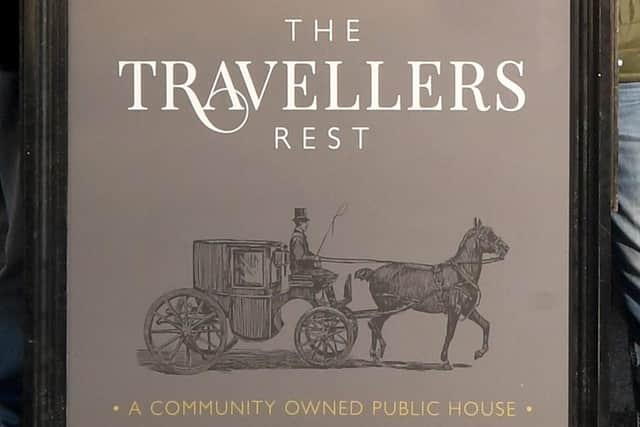An action plan is needed to help licensed trade - Andrew Vine
Last Friday, the Travellers Rest served its first drinks since closing in 2008, thanks to the efforts of the oldest-established community pub group in the country. It is owned by the village, and has reclaimed its rightful place at the heart of local life.
Happily, on the same day it opened, there was some more welcome news for our region’s hospitality industry, of which pubs are so important a part. After weeks of uncertainty, the Black Sheep brewery – and its 140 jobs – were saved by its purchase by the Breal group.
Advertisement
Hide AdAdvertisement
Hide AdThe brewery is a Masham landmark, and its loss would have been a grievous blow for that part of North Yorkshire. But such good news stories as this, or the Travellers Rest, are sadly increasingly rare. Pubs are closing at an alarming rate, and their loss is harming the communities they once served.


On a visit to Scarborough and Whitby last week, I was saddened to see three pubs I knew well, and liked immensely, had shut. It was a surprise, because all seemed to do a brisk trade, but wherever you live in Yorkshire, there is a similar story to tell. Even though customers come, the sums just don’t add up.
Last month, figures from the licensed trade revealed the unsettling fact that there had been a 60 per cent increase in pubs shutting in the first three months of this year, victims of the pandemic’s economic damage and the sharp increase in energy prices. The ending of Government subsidy for energy bills leaves pubs facing an average increase of £18,400 a year – and that could spell the end of many more.
The plight of the industry was summed up by a statement from Black Sheep as it announced the possibility of going into administration before the rescue deal was completed. It had faced a “perfect storm” due to Covid and rising costs. This is a storm that must not be allowed to leave our communities the poorer for the loss of their pubs.
Advertisement
Hide AdAdvertisement
Hide AdThe Government went some way towards acknowledging the sector’s struggles in the spring budget when beer duty was cut, but that does not go far enough in giving pubs a fighting chance of survival.
There needs to be a proper review of the problems that the industry faces and action to help it, one aspect of that being a rethink on business rates. This isn’t about encouraging drinking. It’s about reaching out to communities and those who live in them. Pubs are meeting places that at their best are as much the heartbeat of local life as parades of independent shops or schools, where friends and neighbours can meet and get to know each other.
They are essential in combating loneliness or social isolation, places where people reveal and discuss their problems in an informal setting, a focus of fund-raising for good causes and often a driving force in local sport. Their capacity to be a force for good in uniting people was underlined only a few weeks ago, when pubs screening the Coronation were packed. A community without a pub – or worse, with one permanently shuttered – feels like it is lacking something.
Saving our pubs should not be regarded as an act of sentimentality, or propping up failing businesses, but as an essential step in strengthening communities. Although there are increasing numbers of groups like that in Skeeby running their own pubs, they remain relatively few and far between, and mainly exist in rural areas where there is already a strong community spirit.
Advertisement
Hide AdAdvertisement
Hide AdPubs have done their best to attract new trade, by serving food and staging events including quizzes and live music. One close to where I live offered itself as the headquarters of a cycling club that was priced out of its previous premises by a rent increase.
Such a determination to play a useful part in community life deserve to be encouraged.
The Government cannot stand idly by and let yet more pubs go to the wall. Though brewers and the licensed trade both have vigorous trade bodies, Ministers have never paid enough attention to them, seemingly assuming that the great British pub will somehow muddle through. It is an absurd notion that an industry employing tens of thousands of people that is a vital cog in the hospitality sector should be left to fend for itself.
It’s time that Ministers sat down with the licensed trade, listened carefully and sympathetically to its concerns, and worked out a plan to give Britain’s remaining pubs the best chance of not only surviving, but prospering.